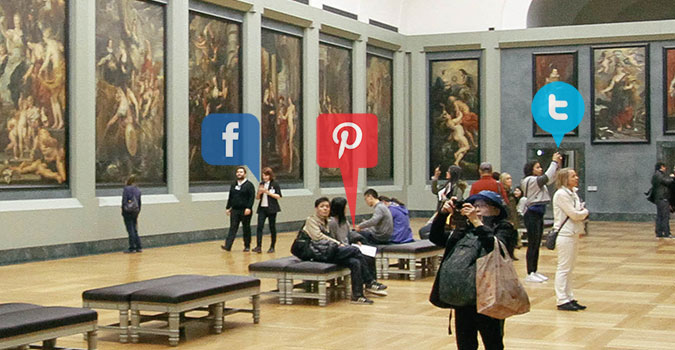Amazon and Apple have completely changed how we consume music. In less than a decade, we have gone from CDs, to downloads, to streaming. The online content industry is about to face its own tsunami of change.
We've Moved!
Think Clearly has a new home! Click here to see our latest posts.
*If there’s older content you’d like to catch up on, you can browse right where you are, until Friday, April 5th.
We know it takes a minute to get used to change!
Ron Aspe, CEO
Recent Posts
The Knowledge-based Content Business is Facing Digital Disruption
Topics: Library Management, Knowledge Management
Do the Original 5 Laws of Library Science Hold Up in a Digital World?
A theory proposed by S.R. Ranganathan before the advent of the digital age detailed the five principles of operating a library system. Since its publication in 1931, a number of variants have been suggested—but rather than rewriting the principles, let’s examine how “The Original 5” still apply today.
Topics: Library Management, Solo Librarianship
Originally Posted: 2/19/2016
A HiPPO is the “Highest Paid Person's Opinion.” Often HiPPOs are very wrong. Just ask BlackBerry and Nokia, two big name TELCOs with leaders who completely misread the smartphone market. Allowing the HiPPOs in your organization to have complete control of your KM strategy could result in similar consequences.
The Right Archiving Software Addresses 10 Top Challenges for the Archival Profession [Part 2 of 2]
Topics: Archives
The Right Archiving Software Addresses 10 Top Challenges for the Archival Profession [Part 1 of 2]
H. Thomas Hickerson, in his turn of the 21st century address to the Society of American Archivists, described “Ten Challenges for the Archival Profession”. Since his presentation, information technology has achieved significant advancements that empower archivists seeking to address these goals.
Topics: Archives
Is Artificial Intelligence (AI) a threat to your career? Yes. But read on.
AI is likely to have an increasingly significant impact on the knowledge management profession over time. But with the right strategy, you can be assured of remaining employed in your chosen field.
Topics: Library Management, Knowledge Management, Solo Librarianship, Professional Development
5 Ways to Increase Museum Visitor Engagement (and Visits!) Via Your Collections Management System
The great thing about using your Collections Management System (CMS) to increase audience awareness and drive museum traffic is that it’s easy to do and you don’t have to buy anything. What could be better than that?
Topics: Museums, Social Media
All our software is developed on a platform we call LucideaCore, with the key advantage that enhancements made for one Lucidea product can be easily leveraged with others, keeping costs down and speeding deployment. We recently launched a project to make our software more accessible to people with disabilities. By virtue of our platform-based approach to developing KM solutions, related new capabilities will soon be incorporated into all LucideaCore products.
Topics: Library Management, Knowledge Management, Lucidea, Collections Management Software, Archives
The Top Three Social Technologies for Developing Organizational Strategy
In a June 2016 article titled The Evolution of Social Technologies, McKinsey & Company reported that the use of social technologies has evolved to include their use as tools for developing Organizational Strategy. Knowledge management (KM) professionals and librarians need to recognize this represents an opportunity for them to contribute to organizational success at the highest level.
Topics: Library Management, Knowledge Management, Information Management, Enterprise Social Networks, Social Media
Every job has its pluses and minuses. Consider dentists: great work environment, good pay and definitely needed. However, does anyone really appreciate their dentist? Same deal for doctors—and KM professionals. How does one stay excited about one’s career?
Topics: Knowledge Management, Information Management, Professional Development
Pilots can’t fly their planes unless they have instruments that tell them what the plane is doing at all times, and where it’s heading. KM professionals need instruments too, in order to assess whether the products and services they are providing are valued, and to understand what additional products and services might be needed.
Most of us don’t buy software very often. In fact, unless you are a senior Information Technology Manager, you may do so only a couple of times in your career. The most common software selection problems are easily avoided with a little advance planning.
Topics: Library Management, Knowledge Management, Museums
3 Extraordinary Visual Tech Trends You Can Leverage For Your Museum
Can disappearing texts, images and videos increase the visibility of your museum? As strange as it sounds, the answer is “yes.” Trying to attract potential visitors? Reach them via smartphone—with mobile video. If you want to create the ultimate museum experience sample, virtual reality can take your advertising to another dimension.
Topics: Museums
Social media platforms offer a game-changing opportunity for museums to broaden their reach and connect interesting and inspiring collections with potential visitors and donors. With social media, word of mouth spreads at the speed of light, effectively crowd-sourcing museum marketing.
Topics: Museums, Social Media
How Going Mobile Helps Museums Improve Productivity and Increase Visibility
Topics: Museums, Technology
Every organization has a disaster recovery plan. Knowledge Management has a key role to play in ensuring your organization’s survival.
Topics: Knowledge Management
Are You Accountable for Managing Your Organization’s Knowledge and Intellectual Property Assets?
The concept of accountability often has negative emotions attached to it. Ever wonder why that is? Maybe it’s the “hot potato” syndrome. Too many of us have been held accountable for events we have no hope of controlling.
Topics: Library Management, Knowledge Management, Information Management
Business content providers such as Lexis, Westlaw, Factiva and ProQuest are about to face a new wave of competitors due to the increasing digitization of information resources. Just as Netflix, Amazon and Hulu disrupted the personal entertainment sector by enabling viewers to avoid purchasing “bundles” that include content they don’t want, competitors in the business content space will soon apply similar disruptive pressures on traditional business content providers.
Topics: Library Management, Knowledge Management, Information Management



















